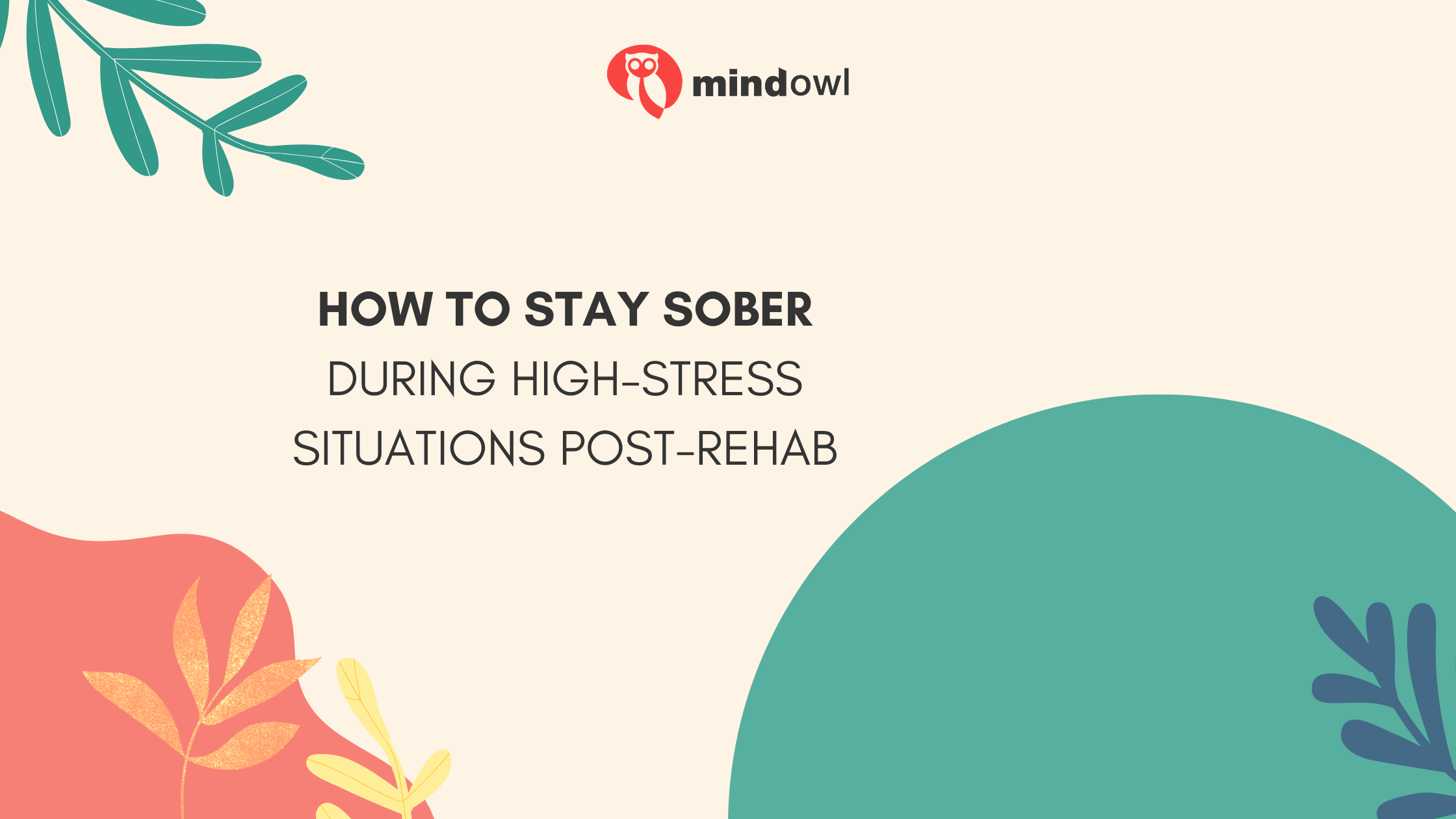Overcoming addiction marks an achievement; however, the process doesn’t stop there. For people grappling with the task of staying sober amidst intense stress levels, it is vital to ensure long-term recovery success. This blog delves into practical tactics to stay alcohol-free when faced with unexpected challenges in life.

Understanding Triggers
Situations can trigger cravings that prompt people to fall back on familiar behaviours from the past during times of stress. Understanding these cues is key to handling them. Different stressors affect individuals differently. If you are looking for a luxury rehab in London, the facilities should focus on identifying these triggers to create personalised coping strategies. Keeping a journal to document thoughts and feelings can reveal recurring patterns and aid in predicting and dealing with triggers ahead of time.
Building a Strong Support Network
Building a support network is incredibly important and cannot be emphasised enough. The presence of friends and family, along with support groups, plays a role in providing motivation and holding oneself accountable. Group meetings present an opportunity to exchange stories and seek advice from individuals who can relate to the challenges one faces.
Developing Healthy Coping Mechanisms
It’s important to swap unhealthy habits for ones that can positively impact your well-being and stress level management. Activities like mindfulness, meditation and practising breathing techniques can really help you handle stress while enhancing your overall health and wellness. Engaging in exercises like taking a walk or doing yoga helps release tension and contributes to your overall sense of well-being.
Establishing a Routine
Having a planned schedule helps maintain stability and lowers the chances of setbacks in progress. Following a routine in tasks like eating times and physical activities brings a feeling of normalcy. Making sure to get enough rest promotes physical renewal for stress management. Setting goals boosts self-assurance and brings a sense of achievement.
Utilising Professional Resources
Specialists in addiction recovery offer knowledge and resources to individuals seeking help in overcoming their challenges with substance use disorders. CBT helps individuals change their thinking patterns. Other approaches, like DBT, help individuals manage their emotions effectively. Interacting with these experts provides people with techniques to handle stress and difficult situations.
Practicing Self-Care
Engaging in self-care is essential for staying sober. You should put yourself first and avoid stress overload from sources like work or relationships. Essential activities such as relaxing in a bath or indulging in a book help maintain well-being during tough times. Practising self-kindness and being patient with yourself is key for navigating stressful moments.
Staying Connected
Isolation can increase stress levels significantly; thus, staying in touch with others is crucial for well-being. It’s important to communicate with people who provide support to keep a positive perspective. Participating in activities, whether face-to-face or online, nurtures a feeling of belonging and connection. Getting involved in community service offers an opportunity to engage with others and make an impact.
Adopting a Positive Mindset
Maintaining a positive mindset boosts resilience and helps cope with stress better by shifting attention from problems to blessings that improve mental health, wellness and confidence-building. Affirmations and visualisations pave the way to conquering challenges while acknowledging small wins along the path, strengthening one’s dedication to staying sober.
Avoiding Risky Situations
To stay on track in your recovery journey, it is important to avoid places that may tempt you. Identifying situations that pose risks and making plans for activities can help you stay focused. Being around people who understand and support your efforts in recovery creates a safe environment. Organising gatherings or outings in places that promote sobriety can help reduce challenges and stressors.
Continuing Education
Keeping up with information on addiction and recovery helps build determination. Exploring books and participating in seminars broadens one’s knowledge of the recovery journey. Having insights empowers people to make choices and remain vigilant against challenges. Interacting with materials emphasises the significance of dedicating oneself to sobriety.
In Summary
Staying clear-headed in scenarios after rehab demands commitment and planning efforts. Acknowledging triggers and support from others and cultivating coping strategies help people handle difficulties successfully. Formulating a schedule, relying on help, and prioritising self-care also contribute to staying sober. Staying in touch, maintaining a positive outlook, staying away from risky places, and continuing to learn all strengthen resilience. In the end, the path to recovery is individualised. With resources and encouragement, sustained sobriety can be attained.
MindOwl Founder – My own struggles in life have led me to this path of understanding the human condition. I graduated with a bachelor’s degree in philosophy before completing a master’s degree in psychology at Regent’s University London. I then completed a postgraduate diploma in philosophical counselling before being trained in ACT (Acceptance and commitment therapy).
I’ve spent the last eight years studying the encounter of meditative practices with modern psychology.

